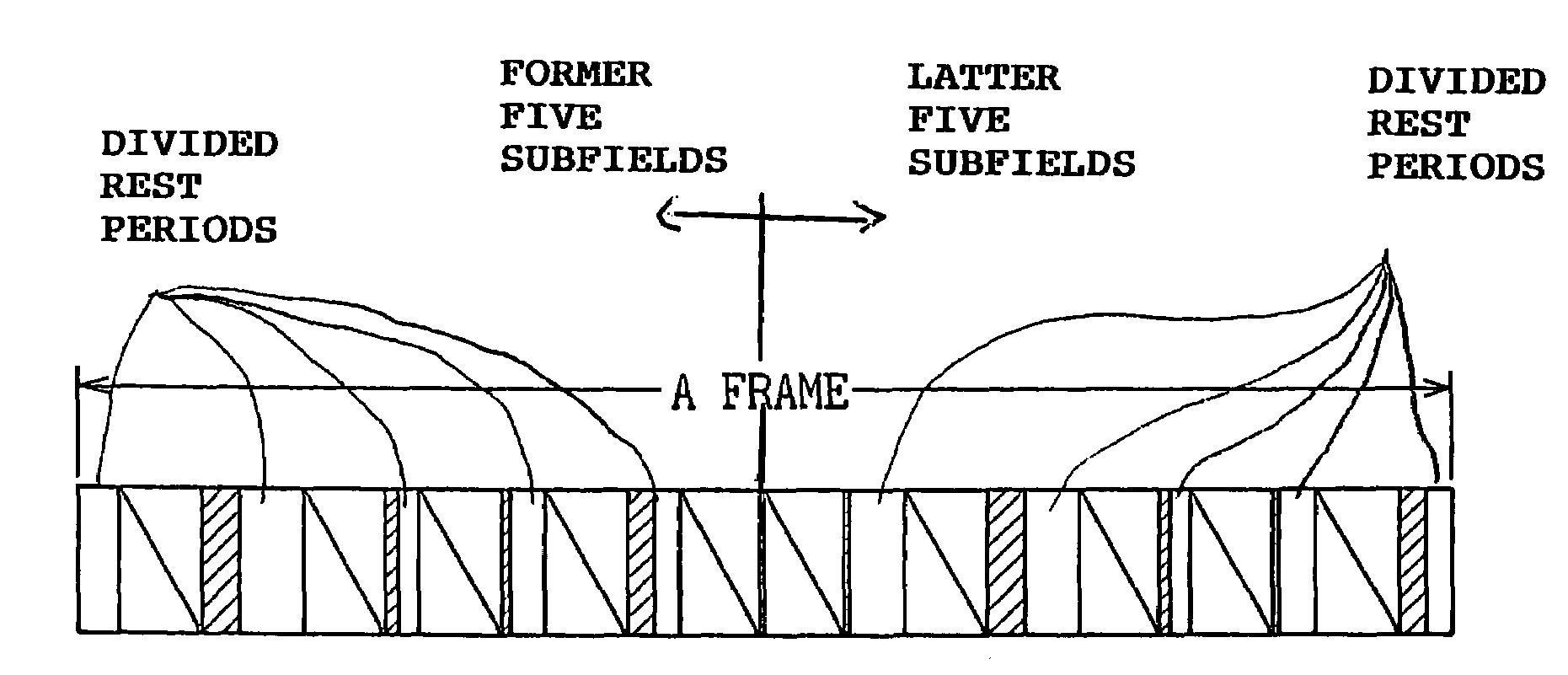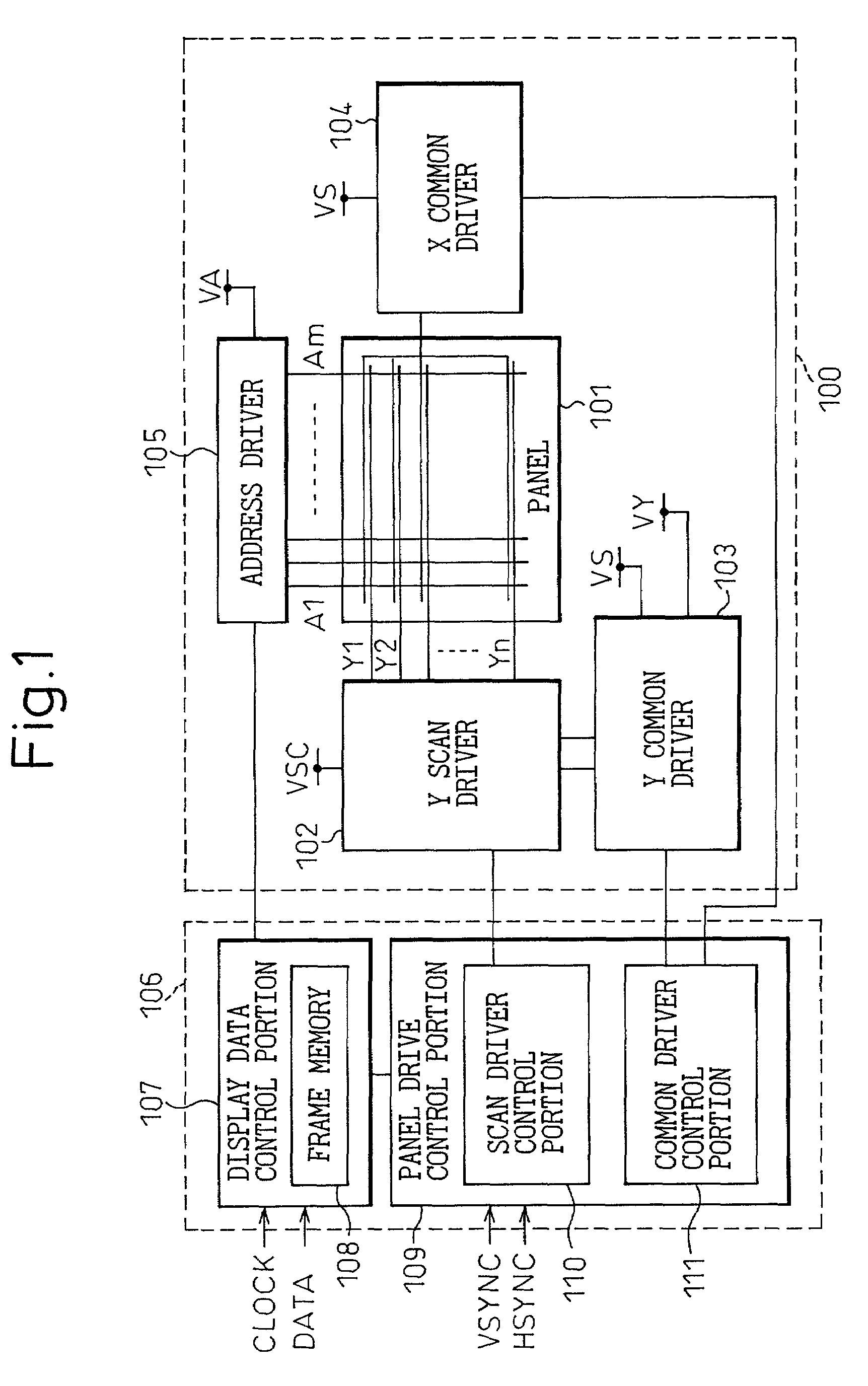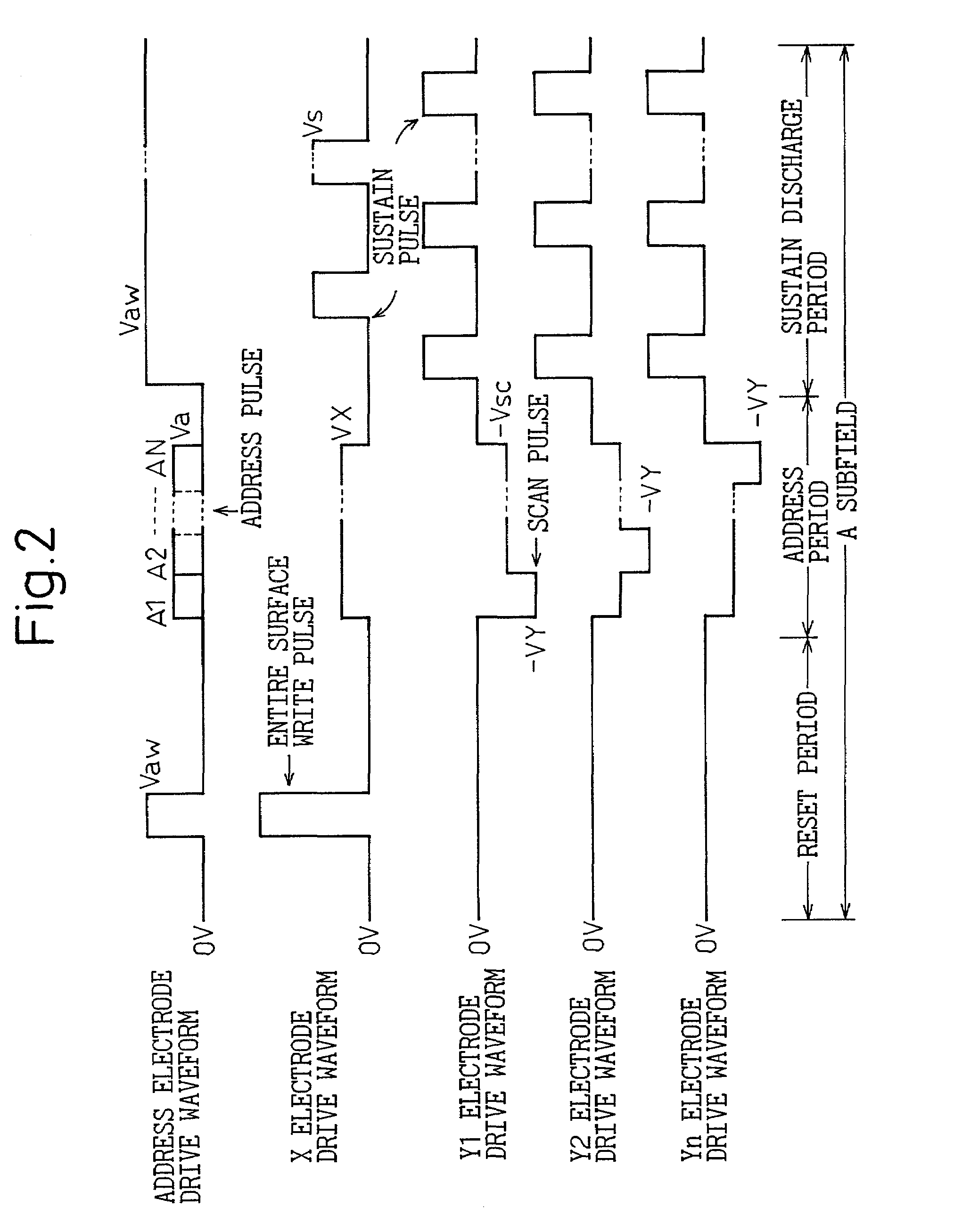Method of driving display apparatus and plasma display apparatus
a technology of display apparatus and plasma, which is applied in the direction of instruments, television systems, static indicating devices, etc., can solve the problems of affecting the quality of display, so as to improve the quality of display and reduce flicker.
- Summary
- Abstract
- Description
- Claims
- Application Information
AI Technical Summary
Benefits of technology
Problems solved by technology
Method used
Image
Examples
first embodiment
[0056]FIG. 9A and FIG. 9B are diagrams that show the frame structure and the variation of the light emission intensity of the method of driving the plasma display apparatus in the present invention.
[0057]As shown in FIG. 9A, in the frame structure in the first embodiment, a total of 10 subfields, that is, subfields of 24, 16, 8, and 4 brightness weight in pairs, respectively, and subfields of 2 and 1 brightness weight each, are provided and arranged in order of brightness weight of 24, 8, 4, 16, 1, 2, 24, 8, 4, and 16. In this example, the rest period is arranged at the end of the frame, the sustain period of the subfield of 24 brightness weight is arranged so that the interval of the sustain period is about half the length of the frame plus the rest period, and the two subfields of 16 brightness weight are arranged at the interval of about half the length of the frame so that each of them is arranged almost at the midpoint between the two subfields of 24 brightness weight. When the...
third embodiment
[0062]In the frame structure in the third embodiment, a total of 10 subfields, that is, subfields of 24, 16, 8, and 4 brightness weight in pairs, respectively, and subfields of 2 and 1 brightness weight each, respectively, are provided and after subfields of 24, 8, 4, 16, 1, and 2 brightness weight are arranged in this order, the first rest period is provided, and then subfields of 24, 8, 4, and 16 brightness weight are arranged in this order and finally, the second rest period is provided. In other words, the rest period is divided into two and arranged between subfields apart from each other. The two subfields of 24 brightness weight are arranged after the rest period (before the previous subfield of 24 brightness weight, there exists the rest period of the previous frame), and when the length of the rest period varies, the lengths of the first and the second rest periods are varied so that the positions of the sustain periods of the two subfields of 24 brightness weight do not ch...
sixth embodiment
[0071]In order to realize the driving method in the sixth embodiment, the panel drive control portion 109 in the drive circuit of the PDP apparatus in FIG. 1 is made to have a structure as shown in FIG. 16 so that the period of the sustain pulse can be varied. In the panel drive control portion 109, a CPU 121 controls the number of sustain pulses of each subfield according to the brightness adjust signal entered from the outside, the internal power control, and so on. The sustain period of each subfield is constant and the CPU 121 determines the period (frequency) of the sustain pulse based on the number of sustain pulses of each subfield and the length of the sustain period, generates the corresponding control data, and puts out to a D / A converter 122. The D / A converter 122 generates analog signals corresponding to the control data and applies it to a VCO 123. The VCO 123 generates clocks of a frequency corresponding to these analog signals (termed “an original clock freguency”), a...
PUM
 Login to View More
Login to View More Abstract
Description
Claims
Application Information
 Login to View More
Login to View More - R&D
- Intellectual Property
- Life Sciences
- Materials
- Tech Scout
- Unparalleled Data Quality
- Higher Quality Content
- 60% Fewer Hallucinations
Browse by: Latest US Patents, China's latest patents, Technical Efficacy Thesaurus, Application Domain, Technology Topic, Popular Technical Reports.
© 2025 PatSnap. All rights reserved.Legal|Privacy policy|Modern Slavery Act Transparency Statement|Sitemap|About US| Contact US: help@patsnap.com



